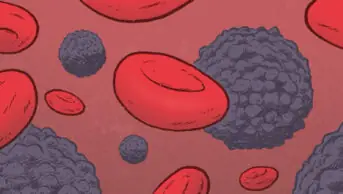
Shutterstock.com
Men with advanced prostate cancer who stop responding to targeted hormone therapy but are then treated with newer chemotherapy have better survival rates than those given a second targeted treatment, a study published in the New England Journal of Medicine has shown (30 September 2019)[1]
.
Funded by Sanofi, a team at the Institute of Cancer Research in London and The Royal Marsden NHS Foundation Trust, compared the benefits of cabazitaxel chemotherapy and targeted hormone therapy in 255 men with advanced prostate cancer.
The participants had all previously been treated with another chemotherapy — docetaxel — and one of the targeted therapies — either abiraterone or enzalutamide.
On average, the men treated with cabazitaxel lived more than twice as long before their cancer came back as those treated with abiraterone or enzalutamide (median, 8.0 months versus 3.7 months).
The authors said that the results suggested that cancer’s ability to develop drug resistance can affect the response not just to one treatment, but across precision medicines that work in a similar way.
“Our findings demonstrate the challenge we can face of cross-resistance between targeted therapies, where they have similar mechanisms of action,” said Johann de Bono, a consultant medical oncologist at the Royal Marsden and one of the study authors.
References
[1] De Wit R, de Bono J, Sternberg CN et al. NEJM 2019; In press. doi: 10.1056/NEJMoa1911206


